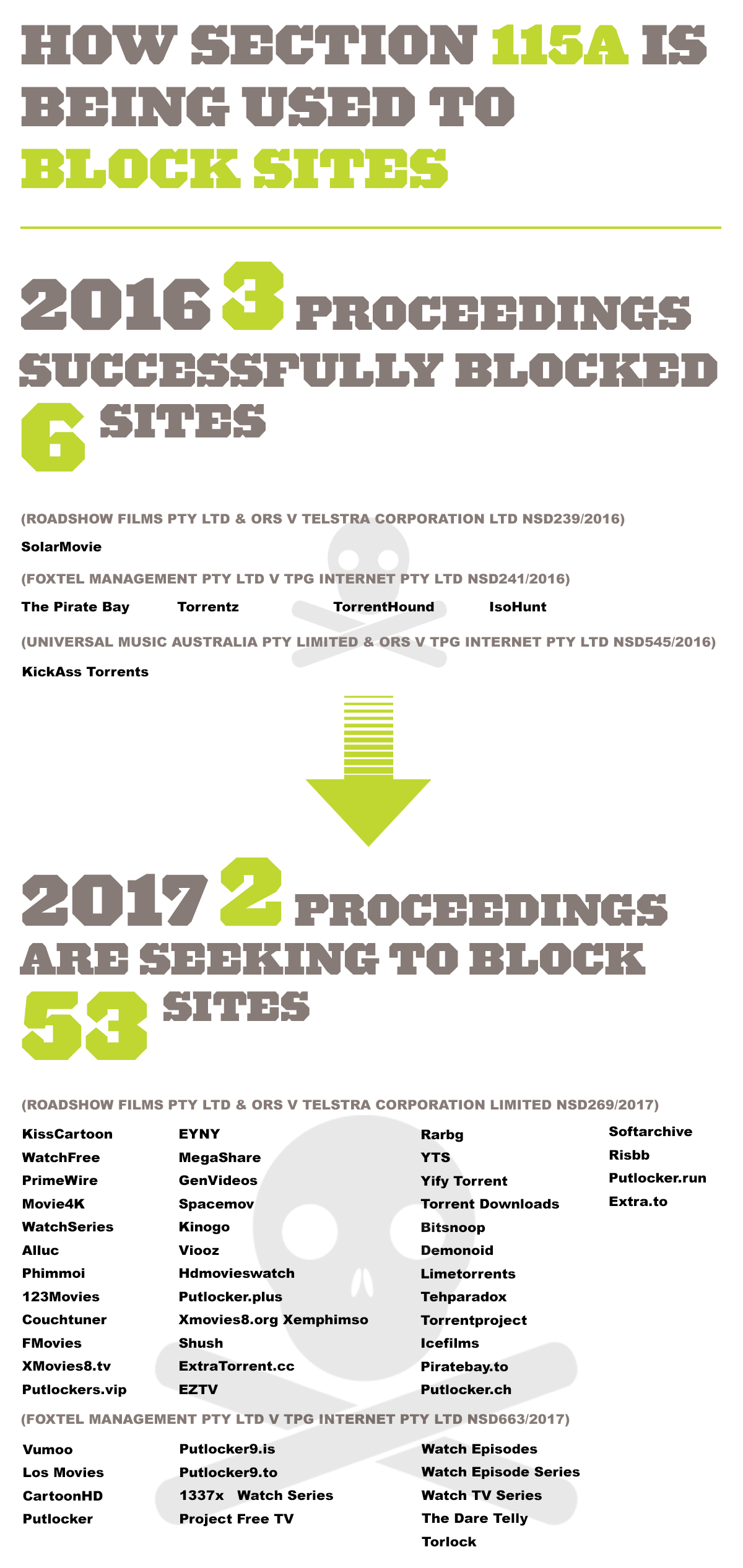
Smooth sailing ahead for anti-piracy website blocking orders

With three cases now having run to judgment under the new website-blocking powers in section 115A of the Copyright Act 1968 (Cth), copyright owners and internet service providers have clear guidance on the practical application of the provision.
The Federal Court most recently made orders in Universal Music Australia Pty Limited v TPG Internet Pty Ltd [2017] FCA 435 which require Telstra, Optus, TPG and Foxtel (including their subsidiary brands) to block access to a number of KickAss Torrents mirror sites in an application brought by music studios and the copyright collecting society, APRA.
This decision confirmed the precedent set by the landmark judgment in Roadshow Films Pty Ltd v Telstra Corporation Ltd [2016] FCA 1503, which considered an application brought by Roadshow Films and a number of film and television studios, as well as an application by pay television provider, Foxtel.
The site-blocking legislation
Section 115A of the Copyright Act 1968 (Cth) came into effect in June 2015 and gives the Federal Court the power to order an injunction to require a carriage service provider (CSP) to take reasonable steps to disable access to an online location outside Australia with the primary purpose of infringing or facilitating infringement of copyright.
In bringing an application, rights holders must establish that:
- the CSP provides access to an online location outside Australia;
- the online location infringes or facilitates the infringement of copyright; and
- the primary purpose of the online location is to infringe or facilitate the infringement of copyright.
This is a "no fault" remedy which does not require the applicant to establish that a CSP has infringed copyright or has any knowledge of the copyright infringement.
Key matters arising from the site-blocking cases
A number of key points have come out of the two judgments:
- CSPs have 15 days from the date of the Court's orders to disable access to the relevant websites.
- The blocking orders will operate for a period of three years and copyright owners can apply to the Court for an extension of that period.
- The Court is likely to consider that the term "online location" includes a website that was online at the time an application is filed but is subsequently taken offline at the time of granting the injunction. This situation occurred in the Roadshow proceeding and the Court determined that a narrower reading of "online location" would "deprive [s 115A] of much of its usefulness" as it would allow a website operator to avoid an injunction simply by taking their website temporarily offline for the duration of the proceedings.
- The Court will require that any variation of the orders to cover additional domain names (ie. new proxy or mirror sites for the blocked websites) is subject to the approval and order of the Court in light of evidence to be put on by the copyright owners.
- Copyright owners will be required to pay the CSPs' reasonable costs of complying with the injunction. In these cases the Court settled on the amount of $50 per domain name blocked, which should set a precedent going forward. However, copyright owners will not be required to pay the CSPs' costs of setting up their website blocking systems.
Further websites sought to be blocked
On 24 February 2017, Roadshow Films and the other film and television studios filed a second application under section 115A, seeking largely the same orders as the Court made in the first case they brought. As a result, the respondent CSPs are not taking an active role in the proceedings.
On 4 May 2017, Foxtel also filed its second application, making it the fifth site-blocking case to be commenced under section 115A. The respondent CSPs are not expected to take an active role in these proceedings either.
With the form of orders the Court is prepared to grant under section 115A now clear, copyright owners face a smoother path to obtaining website-blocking orders to tackle online piracy.
Clayton Utz acted for the Optus respondents in each of these proceedings.

Get in touch
